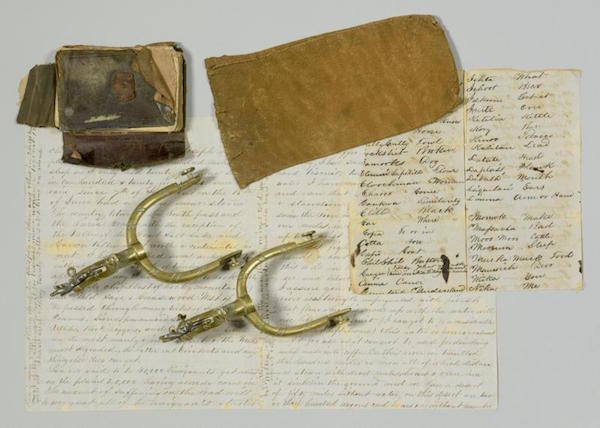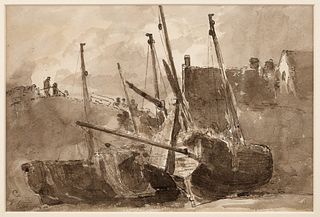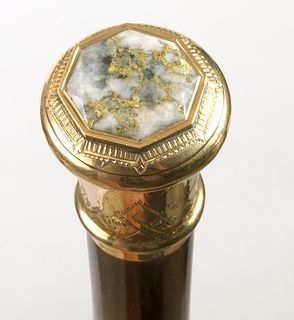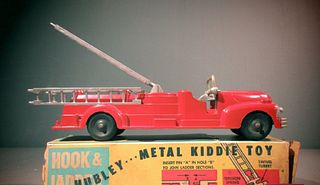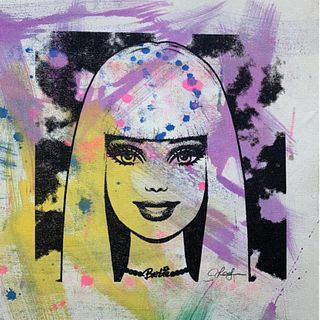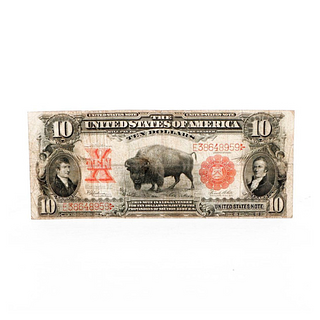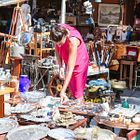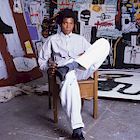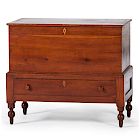The Original Forty-Niners
When gold was discovered at Sutters Mill in Coloma, California in January 1848, gold rush fever soon swept the nation and the greater world beyond. In what was considered the first ever world-class gold rush, over 300,000 “Forty-Niners” made their way to the Golden State fields - half by sea and half over land, in a bid to make their fortunes. Among those bitten by the bug was Edward Dickson Hicks II.
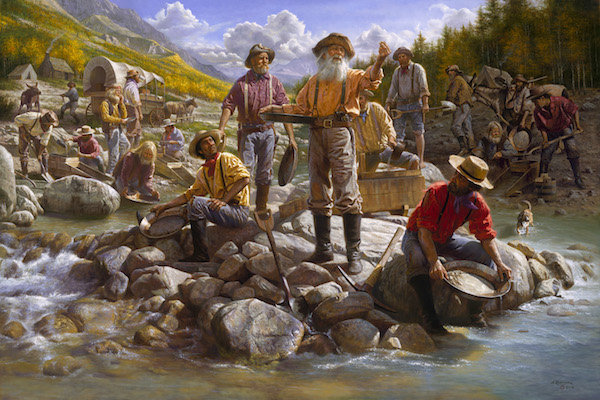
The California Gold Rush proved a pivotal point in Americas expansion across its continent
At his home on Devon Farm in Nashville, Tennessee, Hicks laid his plans. In a Diary beginning January 1, 1850 he wrote: “Have California Fever on high order. I am resolved to go.” Hicks kept the diary through to April 1851, describing his journey in great detail. “The amount of suffering on the road will be very great,” he wrote. “All of the emigrants started from the states with light loads of provisions and expecting to make short trips but all are doomed to disappointment…”
On Saturday, July 30, Case Antiques offers bidders the chance to savor the great Gold Fever adventure of Edward Hicks when they stage their Historic Southern Summer Auction. Selling as Lot 237, ten items, including the diary and Spanish brass spurs belonging to Hicks, a bullet bag, a family archival photo, and various writings will go under the hammer, presenting collectors with a rare and detailed insight into the life and times of a genuine "Forty-Niner," long before anyone had invented football or ever heard of Joe Montana!
The effects of the California Gold Rush were substantial. San Francisco grew from a small settlement of about 200 residents in 1846 to a boomtown of about 36,000 by 1852. New methods of transportation developed as steamships came into regular service, and by 1869 railroads were built across the country from California to the eastern United States. The Gold Rush also had massive negative effects: Native Americans were attacked and pushed off their lands - an estimated 100,000 California Indians died between 1848 and 1868 as a result of American immigration.
Case Antiques Historic Southern Summer Auction contains over 990 lots, featuring property from the estates of Sarah Hunter Hicks Green of Historic Devon Farm, Nashville; Jean Yeatman of Hamilton Place Plantation, TN; Jane McKinnon, Lenoir City, TN; art and antiques deaccessioned from the Memphis Brooks Museum of Art and the Hunter Museum of Art, and from other fine estates and collections.
- Rafael Osona Auctions' Modern & 19th Century Design From Nantucket Estates
- Quilts as a 2025 Design Trend: A Celebration of American Heritage and Craftsmanship
- A Celebration of Sports History and Collectibles
- The Thrill of Sports Memorabilia Auctions: A Collector’s Paradise
- Demystifying Coin Condition: A Guide to the Sheldon Grading Scale
- Snoopy & Friends: A “Peanuts” Auction at Revere
- Colorful Chinese Monochromes at Millea Bros
- 12 Holiday Gifts for the “Impossible to Buy For” on Bidsquare
- Alluring Art Objects and Accessories from the Estate of Chara Schreyer
- Kimball Sterling's One-Owner Outsider and Folk Art Collection Showcases Masters of the Unconventional



 EUR
EUR CAD
CAD AUD
AUD GBP
GBP MXN
MXN HKD
HKD CNY
CNY MYR
MYR SEK
SEK SGD
SGD CHF
CHF THB
THB